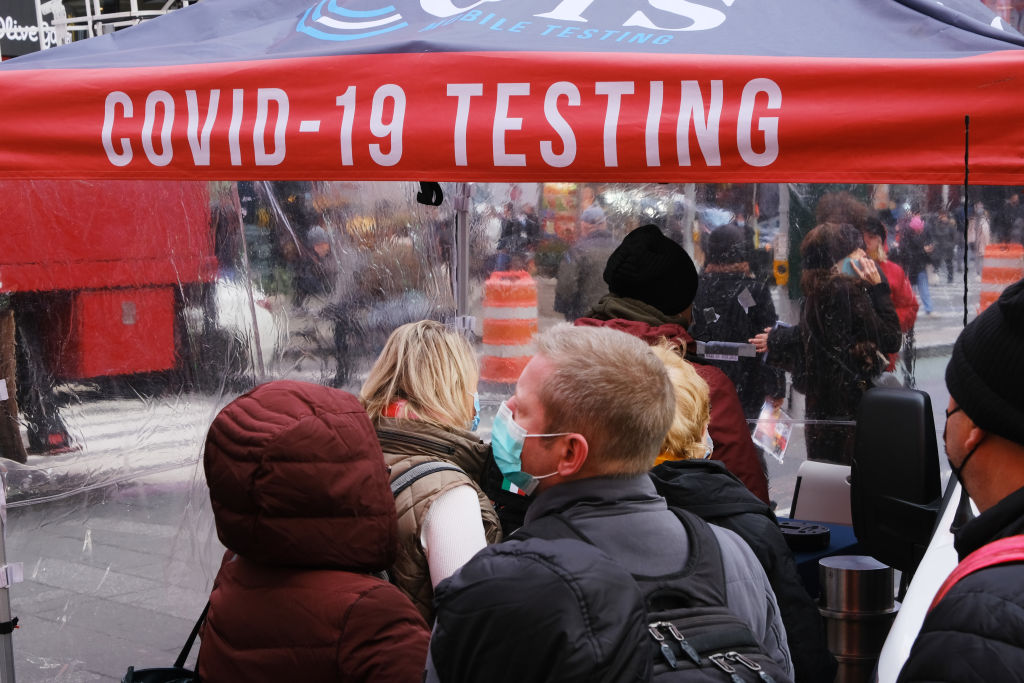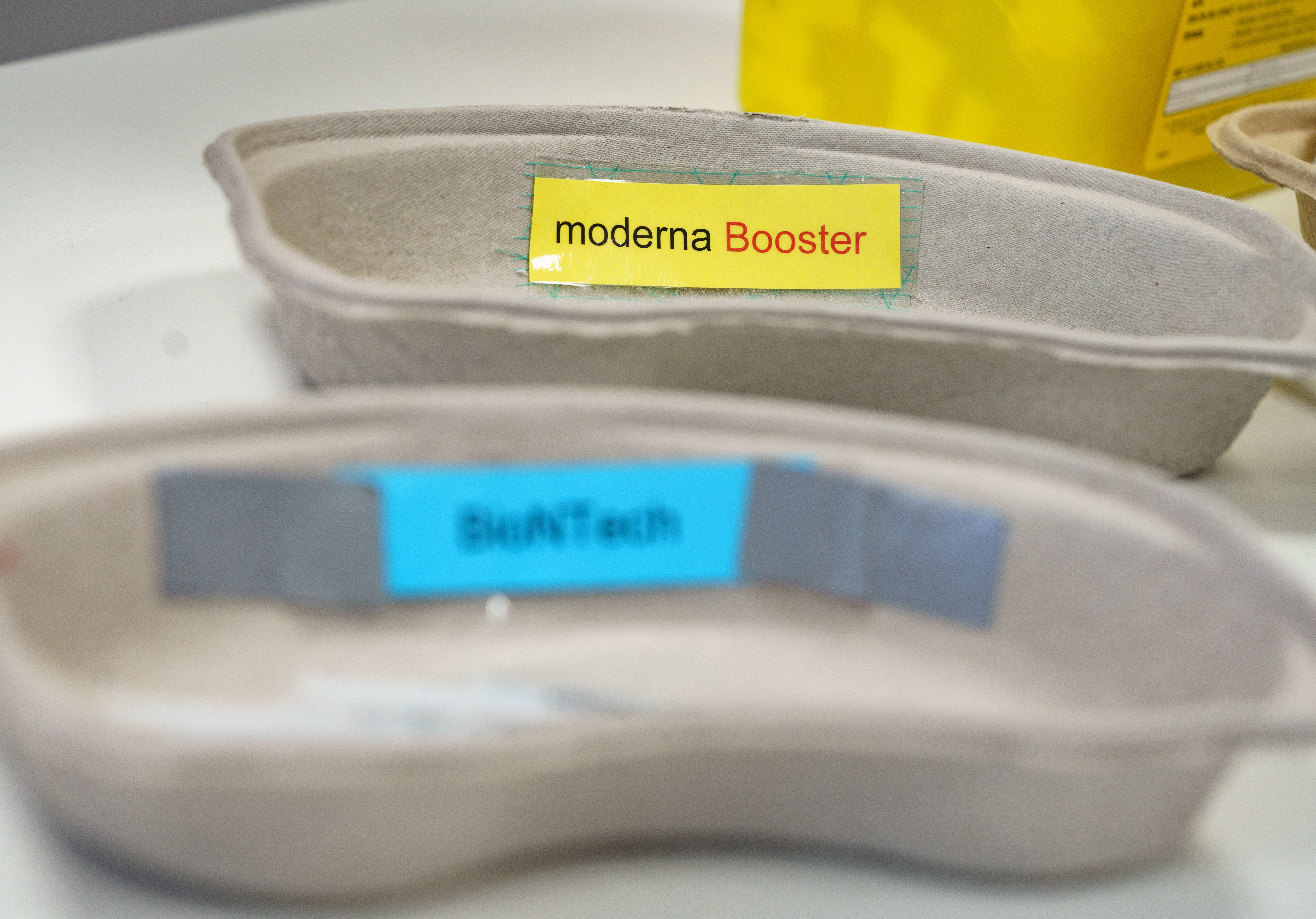With the omicron variant accounting for 73% of new infections last week in the U.S., the strain officially became the country's dominant version of the coronavirus Monday, health officials announced.
The variant has surfaced in all but four states and is responsible for an estimated 90% of new infections in the New York area, the Southeast, the industrial Midwest and the Pacific Northwest, according to the Centers for Disease Control and Prevention.
In Illinois, a total of 17 cases have been detected, according to data distributed Monday by the Illinois Department of Public Health.
The state's first case of the variant was reported in a fully vaccinated Chicago resident on Dec. 7. On Tuesday, the Cook County Department of Public Health announced the variant was identified in a case in suburban Cook County.
Just days later, health officials there issued new mitigation recommendations, warning "suspected cases of the omicron variant are rising... and are likely to escalate quickly."
At that time, Cook County health leaders said while the delta variant remained the prominent variant, case counts, case rates, test positivity, hospitalizations and deaths were "all increasing."
According to IDPH, laboratories continue to perform genomic sequencing of positive specimens to identify any variants, including omicron. Furthermore, health officials have asked laboratories to increase the number of positive specimens they send to IDPH labs for sequencing.
The Centers for Disease Control calculates estimates based on thousands of coronavirus specimens collected each week through university and commercial laboratories and state and local health departments. However, not all samples are tested.
Feeling out of the loop? We'll catch you up on the Chicago news you need to know. Sign up for the weekly Chicago Catch-Up newsletter here.
Scientists then analyze the specimens' genetic sequences to determine which versions of the COVID-19 viruses are most abundant.
Addressing omicron concerns earlier this month, Dr. Ngozi Ezike, the director of the Illinois Department of Public Health, said while "we don't have all the answers right now," general prevention strategies such as masking, vaccination and boosters remain the best protection against the variant.
"As long as the virus continues to circulate, it has the potential to mutate into new variants," she said. "Vaccination can help stop circulation, but we need more people to get vaccinated.”




